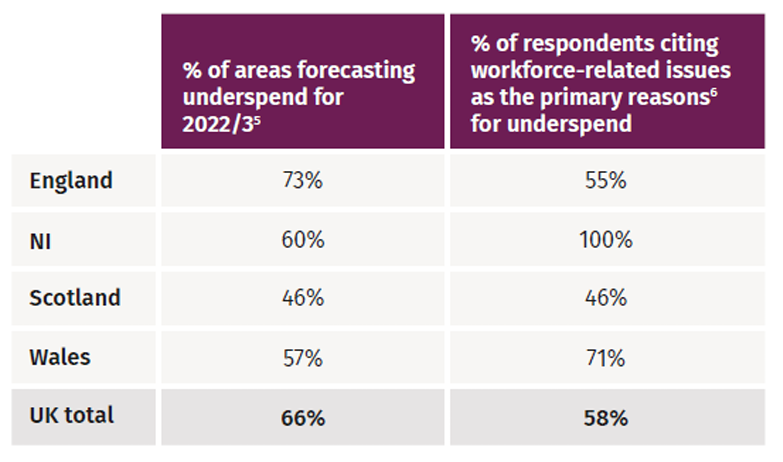Pavilion Publishing and Media Ltd
Blue Sky Offices Shoreham, 25 Cecil Pashley Way, Shoreham-by-Sea, West Sussex, BN43 5FF, UNITED KINGDOM
Many regions across the UK lack the necessary resources to support pregnant women and new mothers with their mental health, a new report has found.
Around one in five women experience mental health problems during or after pregnancy and suicide remains the leading cause of direct maternal death in the first postnatal year.
Furthermore, mental health-related deaths during pregnancy or up to six weeks after birth are increasing, yet many mental health services across the UK are working “far beyond funded capacity”, which is putting a strain on services and reducing the quality of care offered to patients.
Workforce related issues are preventing women from receiving the care they need
The report by the Maternal Mental Health Alliance (MMHA) found that overall provision and quality of specialist perinatal mental health services have improved over the last decade, but progress across the UK has been uneven.

While 89% of maternal mental health services said their budget increased from 2020/1 to 2022/3, two thirds (66%) said there was still insufficient funding available (Figure 1).
The most frequently cited reason for this underspending was workforce related issues, which is inevitably resulting in women, babies, and families not receiving the care they need.
One healthcare professional told the MMHA that their practice is seeing more women every year, but much of their funding is being spent elsewhere, despite an understanding that it should be ringfenced for the service.
“We are working far beyond funded capacity which – as predicted and highlighted repeatedly – is now manifesting as increased sickness, stress, burnout and increased staff turnover,” they said.
The MMHA says secure funding is vital for maintaining specialist perinatal mental health services, and without it, recruitment will be impacted and staffing issues will be exacerbated. This will ultimately cause services to struggle to deliver urgent and necessary care to women who desperately need it.
Few mental health services met national quality standards
Perinatal mental health services across England, Ireland, Scotland and Wales were also assessed against quality standards created by the Royal College of Psychiatrists’ Perinatal Quality Network (PQN) to visualise levels of provision.
In total, only 16% of teams in England and 14% in Scotland met the PQN quality standards and have begun delivering on all four main ambitions of NHS England’s Long Term Plan. None of the teams in Ireland or Wales met this optimal standard of care.
The MMHA has now made nine recommendations to ensure progress is sustained across the UK. These recommendations include:
- Ensuring funding is more transparent
- Addressing short and long-term workforce issues
- Prioritising equity
- Having ambitious quality standards
- Enabling women’s experiences to create change
- Continuing commitment to specialist PMH care
- Improving data collection and transparency
- Joining up care women and families receive
- Taking a trauma-informed approach.
Ensuring that allocated resources reach clinical services
Dr Alain Gregoire, MMHA President says the MMHA is not trying to “name and shame” specific services, but is instead trying to ensure that progress in specialist PMH provision is preserved and built upon, rather than going backwards.
“Despite the incredibly tough landscape, we continue to hear from professionals working on the front line, from women and families and from those working within the system, that these maps and the spotlight they bring is helpful.
“National and local decision-makers in every nation must ensure that allocated resources reach clinical services, so that mothers, babies, and their families throughout the UK can access high-quality specialist PMH support and care wherever and whenever they need it,” he said.


